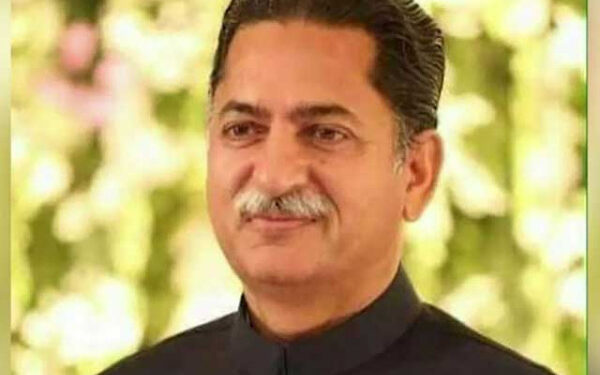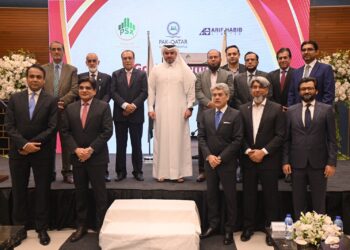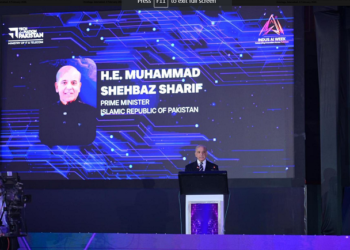Introduction
In a strong and uncompromising statement, Pakistan Muslim League-Nawaz (PML-N) senior leader Javed Latif has reiterated that Punjab Chief Minister Maryam Nawaz will not tolerate corruption within the provincial bureaucracy. He emphasized that anyone found guilty—regardless of their political influence, bureaucratic rank, or regional affiliation—will face strict legal action. Speaking to the media in Islamabad, Latif also took a candid stance on the infamous sugar crisis, admitting that his own government bore responsibility for administrative shortcomings.
Maryam Nawaz’s Zero-Tolerance Policy
Javed Latif highlighted that Maryam Nawaz, the first female Chief Minister of Punjab, is committed to eradicating corruption at all levels.
“The Sharif family has never compromised on their political principles, and Maryam Nawaz will continue that tradition,” Latif said.
He underlined that this anti-corruption agenda is not just political rhetoric but a clearly defined governance strategy aimed at restoring public trust in state institutions.
Specific Reference to Sialkot Scandal
The PML-N leader drew attention to recent controversies in Sialkot’s bureaucratic machinery. Allegations of corruption in certain administrative offices have sparked public debate and criticism.
Latif demanded that the Chief Executive of Punjab take immediate notice of the developments and initiate legal proceedings without delay.
He stressed that corruption in Sialkot or Sheikhupura—whether minor or large-scale—must be addressed with equal seriousness to ensure no precedent of leniency is set.
Responsibility of Public Representatives
According to Javed Latif, it is not enough for the executive to act alone. Public representatives must also take ownership of their constituencies’ issues.
“If corruption cases have surfaced in Sialkot, then it is the duty of elected officials to investigate and ensure transparency,” he remarked.
Latif noted that an integrated approach between the government and legislators can close loopholes that corrupt elements often exploit.
Weaknesses in the Administrative System
Reflecting on the past, Latif pointed out that the administrative weaknesses intensified during the tenure of former Punjab Chief Minister Usman Buzdar.
He claimed that coalition governments often face hurdles from bureaucracy, as administrative officials sometimes take advantage of political instability to serve personal or political interests.
However, Latif credited former Prime Minister Nawaz Sharif’s vast political experience for managing such challenges effectively in the past.
The Sugar Crisis: A Rare Admission of Responsibility
In a rare display of political accountability, Javed Latif admitted that the PML-N government was not without fault in the sugar crisis—a controversy involving the artificial inflation of sugar prices and alleged profiteering by powerful cartels.
“Whether it was incompetence, negligence, or mafia pressure, we are guilty in all three aspects,” he stated candidly.
The scandal, which some estimates peg at ₨ 300 billion, shook public confidence and raised questions about governance across party lines.
Demand for a Transparent Sugar Scandal Inquiry
Latif called for a comprehensive investigation into the sugar crisis, ensuring that both past and present officials are scrutinized.
He argued that selective accountability—where only political opponents are targeted—will not restore faith in the justice system.
Instead, Latif urged the authorities to hold every individual and group accountable, regardless of their political affiliations.
Accountability Beyond the Bureaucracy
While Latif’s remarks primarily targeted corruption in the bureaucracy, he also touched upon issues related to the judiciary, the Election Commission, and political ethics.
He said that if the Election Commission of Pakistan (ECP) or the Speaker of the National Assembly decides to de-seat members of the Pakistan Tehreek-e-Insaf (PTI), there should be no objections, provided due legal process is followed.
He noted that courts have now begun delivering sentences in May 9-related cases after a delay of more than two years.
The May 9 Cases and Questions of Justice
Latif raised a critical question regarding PTI members who distanced themselves from the party after May 9, 2023—the date of violent protests following Imran Khan’s arrest.
He pointed out that some individuals who were initially charged have since been acquitted after holding public press conferences denouncing PTI.
“If someone committed a crime, why were they acquitted? If they were innocent, why were they charged in the first place?” he questioned.
This, he argued, reflects inconsistencies in the justice system that undermine public trust.
Political Implications of the Statement
Javed Latif’s remarks carry weight not just because of his political stature but also because of their timing. Punjab, under Maryam Nawaz’s leadership, is seeking to project an image of reform, stability, and accountability.
Latif’s admission of past mistakes—especially in the sugar scandal—could be seen as an attempt to differentiate the current administration from its predecessors by emphasizing transparency and corrective action.
Public Reaction and Expectations
The public’s response to such statements often hinges on whether they are followed by visible results.
Citizens expect that anti-corruption pledges will translate into actual punishments for wrongdoers, regardless of their connections or political influence.
Given the frequency of corruption scandals in Pakistan’s bureaucratic and political circles, skepticism remains high, but Latif’s forthright tone may help shape a more credible narrative for the government.
Link Between Bureaucratic Corruption and Governance
Analysts note that bureaucratic corruption directly impacts governance quality. When civil servants engage in corrupt practices—such as manipulating tenders, misusing public funds, or influencing administrative decisions—citizens face delays, increased costs, and reduced trust in government services.
Maryam Nawaz’s government, therefore, faces the dual challenge of rooting out corrupt officials and implementing structural reforms to prevent future misconduct.
Historical Context: The Sharif Family’s Stance on Accountability
The Sharif family has long portrayed itself as champions of economic growth and governance reforms. However, critics point to instances where their governments were accused of selective accountability.
Latif’s comments may be an effort to reinforce the PML-N’s political brand as one committed to across-the-board justice, especially in a time when public frustration with corruption is at a peak.
Conclusion: A Test of Political Will
Javed Latif’s statement sets the stage for what could be a decisive period in Punjab’s political and administrative history. If Maryam Nawaz’s government follows through on these pledges with transparent investigations, equal application of the law, and institutional reforms, it could strengthen the PML-N’s position ahead of future elections.
However, failure to act decisively could render such statements mere political rhetoric. For now, the ball is in the court of Punjab’s leadership—and the public will be watching closely.

























